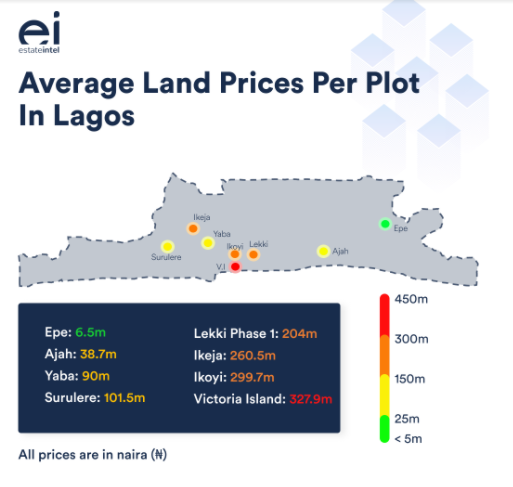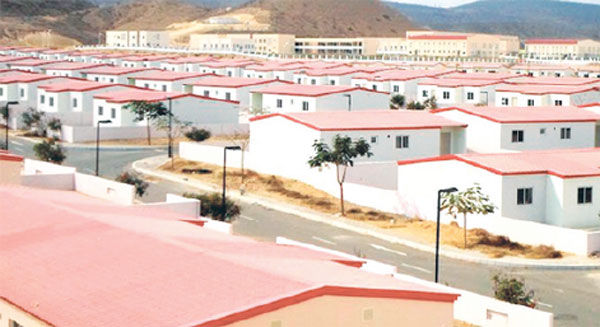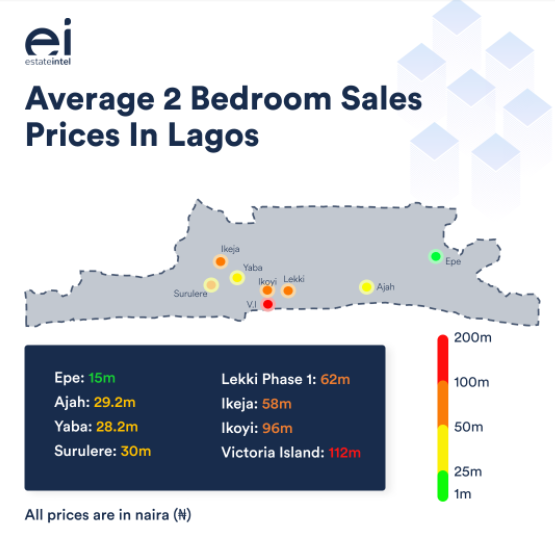Purchasing property in Lagos, All you need to know
Purchasing property anywhere can seem like a daunting task and the case is not any different in Lagos State. In the article below we highlight 4 key things you need to know about buying property in Lagos.
Planning and Regulatory Laws you should know about
The Real Estate Regulatory Authority Bill (LASRERA)
This law prohibits any unregistered or non-licensed individual from being engaged in real estate transactions in its State.
While unlicensed real estate agents have previously led the charge with regards to real estate transactions in Lagos, identifying licensed agents in the market has been made easier through several platforms including Estate Intel, where you can search the directory page for different top real estate professionals as well as their contact information.
The Land Use Charge Law (2018)
This law mandates that a land-based charge is payable on real properties in Lagos State, Nigeria with each Local Government Council Area empowered to levy and collect the charge for its area of jurisdiction as the Collecting Authority.
Land Registration Law of Lagos State
Passed in 2015 this law creates a balance in the registration of land titles, documents and transactions. Previously, registration of land was not uniform but the enacting of this law makes provision for registration of title to land in Lagos state and harmonization of laws relating to land registration in Lagos state.
The Conveyancing process simplified
While the conveyancing process is usually the most challenging part of buying property. Lack of knowledge on the main documents required can lengthen it even further. Below we highlight the major documents you need to obtain to complete your property purchase.
1. Certificate of Occupancy (C of O)
This is a document issued by the government to the lessee of the land, to own and use the land for 99 years.Only one C of O can be given on a parcel of land. This means that if an owner with a C of O decides to sell his property, another C of O cannot be assigned on that same land. The buyer would need another document that proves he is the owner of the land usually through the Governor’s consent.
2. Governor’s Consent
This is a document signed by the governor to consent on the transfer of a property from one person to another.
This is especially important in cases where agents sell land to many people at the same time.
This whole process according to the state government should not exceed more than 30 days. However, in reality it can take up to 3 to 6 months.
3. Deed of Assignment
This is a document that shows that the seller has transferred all his rights and interests to the buyer. It is usually prepared by the lawyer of the buyer and then vetted by the seller and his lawyer, and then signed. This document contains the details of the transaction and description of the property being sold and is only considered legit upon registration in the land registry and obtaining of the governor’s consent.
4. Deed of Conveyance
This document is similar to a deed of assignment. It was previously considered proof of ownership of a property/land until the Land Use Act 1978 came into effect. Some old houses in parts of Lagos still have these as their title documents.
5. Survey Plan
This is a document that shows the boundaries of a parcel of land along with its measurement and description. It is usually obtained from the office of the Surveyor General in Lagos.
6. Deed of Mortgage
This document is required in the instance that financing is required. It gives the mortgagee (lender of a loan) an interest in the property. If the borrower of the loan defaults on loan payment, the holder of the document can take possession of the property.
7. Contract of Sale, Letter of Allocation, and Receipts
The contract of sale document is a document that indicates the purchase of a property while the letter of allocation shows that a property or land has been allocated to an individual, either from the state or a private developer.
On the other hand, a payment receipt indicates that the seller has received a specific amount of money for the sale of the property in question.
Even though these three are important evidence of a land or property transaction, they do not stand as legal title documents and they cannot be perceived as a deed of assignment.
Understanding market prices, fees and taxes
Prices of properties across Lagos state vary according to the location. The most expensive areas in Lagos are typically found in the Island areas, and these include: Lekki Phase 1, Victoria Island, and Ikoyi areas. On the mainland, the main residential areas include: Yaba, Surulere, Ikeja GRA, Magodo, Ikorodu, etc. The average land prices per area are as illustrated in the map below:
 Similarly, average residential prices in Lagos are as illustrated below.
Similarly, average residential prices in Lagos are as illustrated below.
Apart from prices, other fees a buyer needs to consider include;
- Professionals and agents fees. This is typically between 2-7% depending on the sales price of the property.
- Legal fees. These are usually between 2-5% of the sales price depending on the price of the property.
Other taxes that the buyer needs to pay attention to include;
- Omo-Onile charges. These are usually incurred when buying land from communities, especially in places like Ibeju-Lekki The fees include: development levy, foundation fees, decking fees, community fees. If these fees are not paid, these Omo-Onile would disallow the buyer from taking possession of the land.
- Service charge. This is a common charge paid in planned estates for the provision of amenities and facilities.
Due Diligence checks
This is typically the process of cross checking the title and ownership of the land or property to make sure there is no encumbrance or other claim on the land. It is usually conducted by the lawyer and involves the following type of searches:
- Lands Registry search
- Corporate Affairs Commission (CAC) search
- Probate registry search
- Traditional search from the community
- Court judgments
- Physical inspection.
Source: nairametrics





